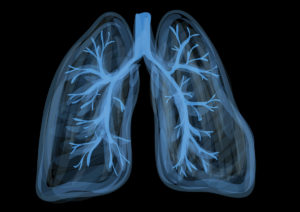

The organs in Chinese medicine are more than just a physical representation. The organs include not only their physiological function but also mental, emotional, spiritual and elemental qualities that align with nature and the seasons.
The lung season is autumn. This is a good time to protect the lungs from changes in weather by wearing a scarf to keep your neck warm, staying out of wind and keeping your dryness at bay. It’s an excellent time to nourish the digestive system with warmer foods such as sweet and sour soup, steamed vegetables and making seasonal choices at the market. It’s also a good time for letting go and allowing changes to process without repressing emotions such as sadness and grief.
The lungs are known as the “delicate organ”, as they are the uppermost, most superficial aspect of the body and therefore the most sensitive to environmental changes such as wind, dryness, heat, cold and damp. They breathe in the pure air to nourish the organs and let out the impure. According to Chinese medicinal principles the lungs push waste and fluids downwards to help the large intestine, so these two organs are known as paired organs. The lungs transport yin fluids (the yin part of us is what is moist, lubricating) and distribute moisture. They are also in charge of the opening and closing of pores and sweat glands, and they provide moisture to body hair and skin.
The lung channel opens to the nose, governs the voice, its color is white and its flavor pungent. The emotion associated with the lungs is grief. The lungs receive and let go, keeping the movement in and out in a healthy exchange with the outer world. If that exchange is blocked emotionally by grief and sadness, it affects the smooth action of the lungs. When someone is sad, they hold their breath and oxygen is decreased. The emotional blockage of not letting go and the symptom of grief affects the receiving and letting go action of the lungs.
How can you tell if your lungs might be deficient? Some symptoms include frequent colds, asthma, bronchitis, cough, dry skin, fatigue, pain and distention in the chest. Itchy skin, and increased nasal discharge can also be indicators.
Here are some ways to strengthen your lungs:
Breathe: Taking deep-cleansing breaths is an excellent way to keep your lungs in shape. Abdominal breathing, or diaphragmatic breathing, is ideal for keeping the circulation, oxygenation and lymph drainage of your lungs strong. Place your hand on your abdomen and feel your hand rise as you breathe deeply more from your core than your chest. Breathe in and hold for a few seconds, let it out slowly and repeat several times. Singing is also good for the lungs, so belt out your favorite songs.
Exercise: Exercise like tai qi, qi gong and walking keep your lungs in shape naturally, as inhaling and exhaling steadily brings in fresh oxygen and circulates energy.
Posture perfect: All those well meaning people who told you to straighten up had a point. Good posture opens the chest, which is good physically and also emotionally “opening up to the world”.
Diet: Lungs are associated with the color white and its flavor is pungent. Examples of these foods, which should be eaten in moderation, are radish, white mushrooms, whitefish, cauliflower, onions, apples, Asian pears and garlic. Grapefruit is also beneficial.
The lungs do not like too much cold, so an abundance of cold food such as dairy, cold raw vegetables, ice, salads and fruit juices create too much mucus in the lungs (cold inhibits circulation), slowing down digestion and metabolism.
Book an acupuncture session here to learn more about your own lung health.




